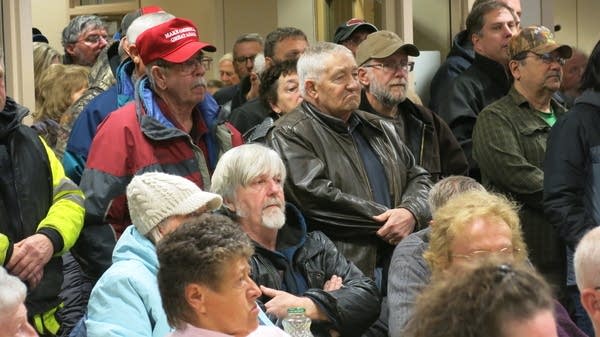Beltrami Co. becomes first in state to reject refugee resettlement
A presidential executive order has prompted county boards across the country to weigh whether they’ll allow refugees to be resettled within their borders.

The Beltrami County Board room was packed with locals Tuesday evening. Most came out to ask the commissioners to vote against the possibility of refugees resettling in the area.
John Enger | MPR News
Go Deeper.
Create an account or log in to save stories.
Like this?
Thanks for liking this story! We have added it to a list of your favorite stories.


